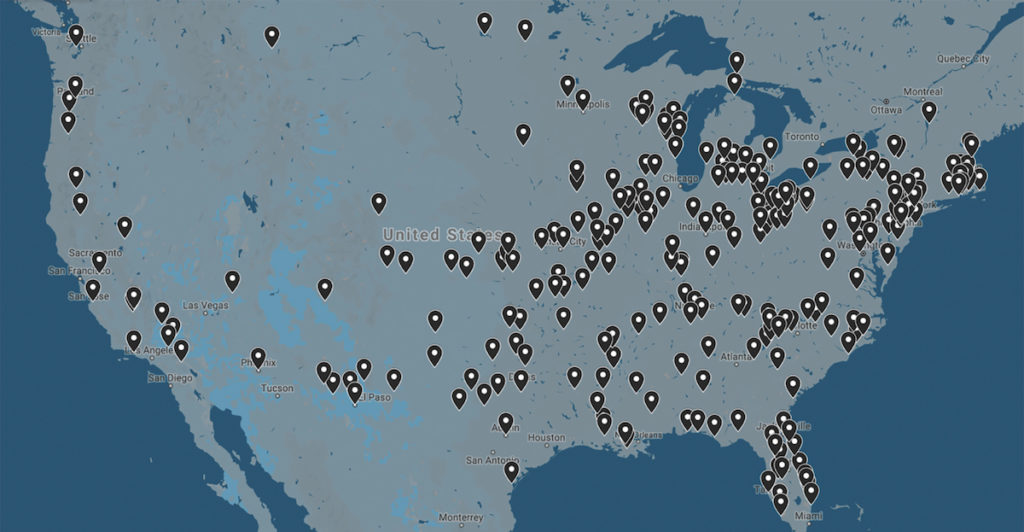The weekly Nantucket Inquirer and Mirror, owned by a series of corporate chains for the last 30 years, has returned to the ranks of independent and locally owned newspapers.
A group of investors headed by David Worth, a Nantucket native and retired business executive, purchased the Inquirer, known on the island as “the Inky,” on Nov. 1 for an undisclosed sum from Gannett LLC, formerly GateHouse Media, the largest newspaper conglomerate in the U.S. GateHouse bought Gannett, publisher of USA Today and about 100 other dailies, a year ago for nearly $1.2 billion and then ditched the GateHouse name.
The Inky, founded in 1821, has now joined the Vineyard Gazette, Martha’s Vineyard Times, Falmouth Enterprise, Cape Cod Chronicle in Chatham, and Provincetown Independent as news organizations on Cape Cod and the Islands under local ownership. Gannett still owns the Cape Cod Times, the region’s only daily, and the weekly Provincetown Banner, Cape Codder in Orleans, Barnstable Patriot, Dennis-Yarmouth Register, Sandwich Broadsider, and Bourne Courier.
Gannett, like GateHouse, is controlled by the New York private-equity firm Fortress Investment Group, which is owned by the giant Japanese holding company SoftBank.
The sale by Gannett to independent local owners is unusual in the recent media landscape, where the vast majority of newspaper sales have gone in the opposite direction.
The Inky was independent from its founding 199 years ago until 1990, when owners Tom and Marie Giffin — current editor and publisher Marianne Stanton’s parents — sold it to the Ottoway chain, a subsidiary of Dow Jones. A series of buyouts led to the paper’s acquisition by Fortress and GateHouse in 2013.
GateHouse’s primary business strategy has been to buy newspapers and then dramatically reduce operating costs and maximize profits through layoffs, running operations out of regional hubs as opposed to local newsrooms, centralizing design and layout operations, and outsourcing customer service. When GateHouse bought Gannett last year, taking on a huge debt to finance the sale, industry observers predicted that the company would need to cut at least $300 million per year in expenses to stay solvent.
The new Gannett has struggled in the year since that sale. Its share price dropped to $0.63 in April, down from over $10 less than a year earlier. The company has resorted to liquidating some of its holdings to stay financially stable. In late August, Gannett sold both the Pine Bluff (Ark.) Commercial and the Mexico (Mo.) Ledger to local media groups, marking a shift in its business strategy.
“When GateHouse purchased Gannett, they took on a $1.8 billion loan,” said Ken Doctor, an independent newspaper industry analyst. “They have a lot of money to pay off very quickly in what was a bad newspaper economy that turned worse because of Covid. Civic buyers, who are people in the community committed to local news, will often pay a high price — they might overpay — and Gannett can look at that and say, ‘It might be better to get out and get the cash.’ They’re a very opportunistic seller.”
Worth and Stanton, who were childhood friends on the island, first discussed the idea of his purchasing the Inky last summer, he said.
“The newspaper staff were having to take furloughs because of Covid,” Worth said. “Part of what piqued my interest was seeing that a lot of stuff was taking place, as Nantucket wrestled with Covid, that wasn’t being covered with good journalism, because of lack of resources. Chalk that up to pressure placed on the Inky by Gannett.”
Worth called himself an “inveterate” consumer of newspapers, though not “a newspaper person.”
“I grew up on Nantucket,” he said. “I delivered the newspaper, and my mother used to work at the newspaper. It’s an important part of the civic fabric of the community.”
When he heard that Gannett would entertain an offer, he worked quickly to assemble a group of investors, arguing that the paper was an attractive purchase.
“The Inky was a good performing property for Gannett,” he said. “The paper was not in financial distress. Advertising has held up pretty well. It declined with Covid, but it has come back.” Its average paid circulation over the past year was 5,874.
Still, it took Worth a while to persuade others to join him. “I spoke with a lot of people,” he said. “They’ll pay $400,000 to join a club out here, but ask them to invest in a newspaper and they run the other way.”
His group, named 41 North Media LLC, made an offer in October and the deal was executed quickly. Worth is the only investor whose name appears on any of the paperwork.
“I’m very happy,” said Bill Hough, editor and publisher of the Falmouth Enterprise. “I think it’s great for the island, and I hope it’s a good sign for the newspaper business. There’s been so much consolidation and ruination lately that it’s nice to think that someone who cares bought it.”

